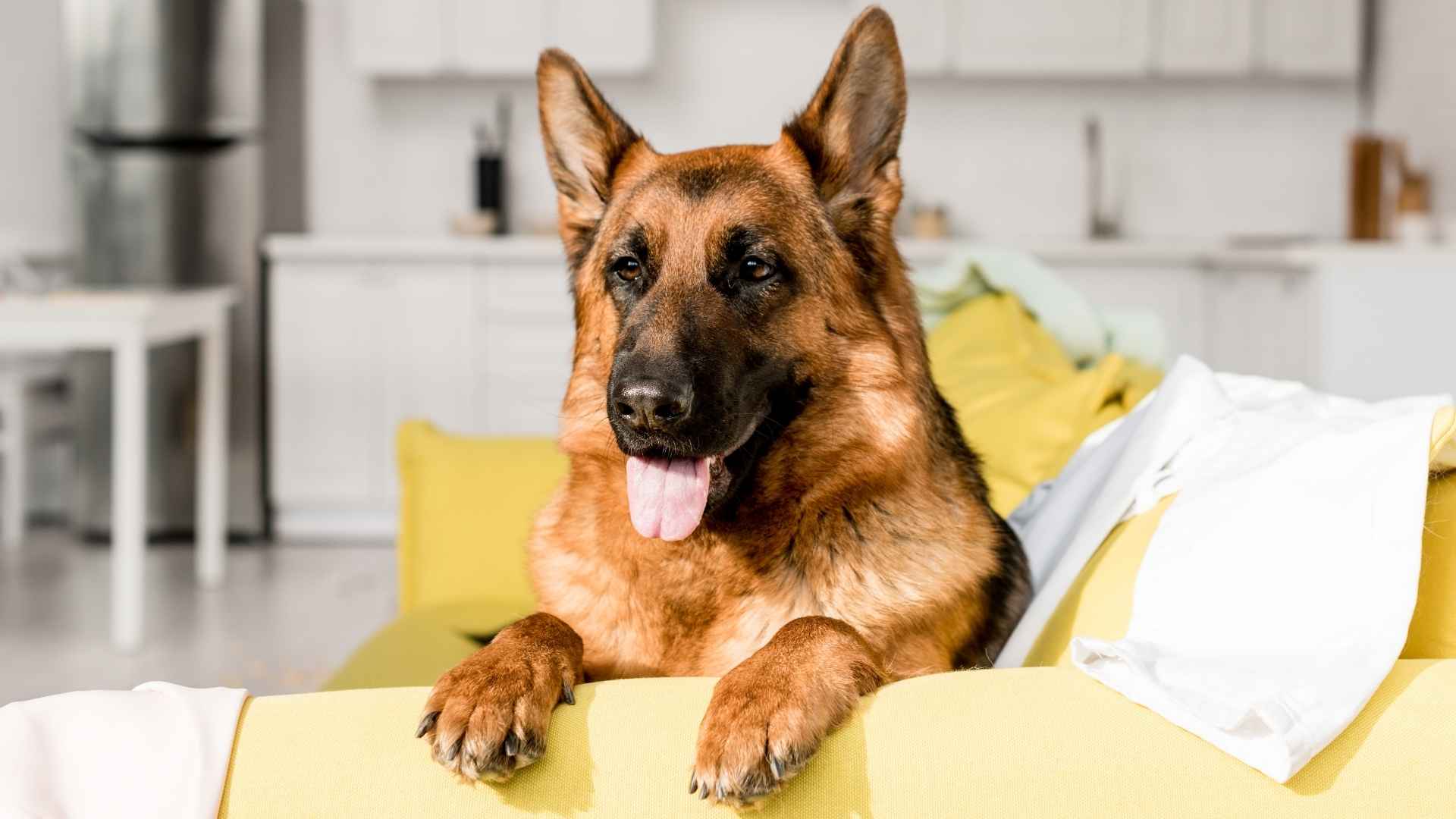Did you know that some of the most alert and protective dogs actually thrive in small apartments? While the idea of a guard dog might conjure images of massive canines patrolling open yards, the truth is quite the opposite for many urban pet parents. In reality, some of the most effective watchdogs come in compact, apartment-friendly packages—ready to raise the alarm at the slightest suspicious noise.
Living in a city doesn’t mean sacrificing security or companionship. If you’re looking for a dog that offers both loyalty and protection without overwhelming your square footage, you’re in luck. Many small-to-medium breeds are naturally alert, courageous, and incredibly devoted to their humans, making them ideal watchdogs for tight living spaces.
In this blog, we’ll explore apartment-friendly guard dog breeds that combine the heart of a lion with the size of a suitcase. Perfect for city dwellers, these pups are as protective as they are space-savvy.
Apartment Guard Dog Breeds
1. Border Collie
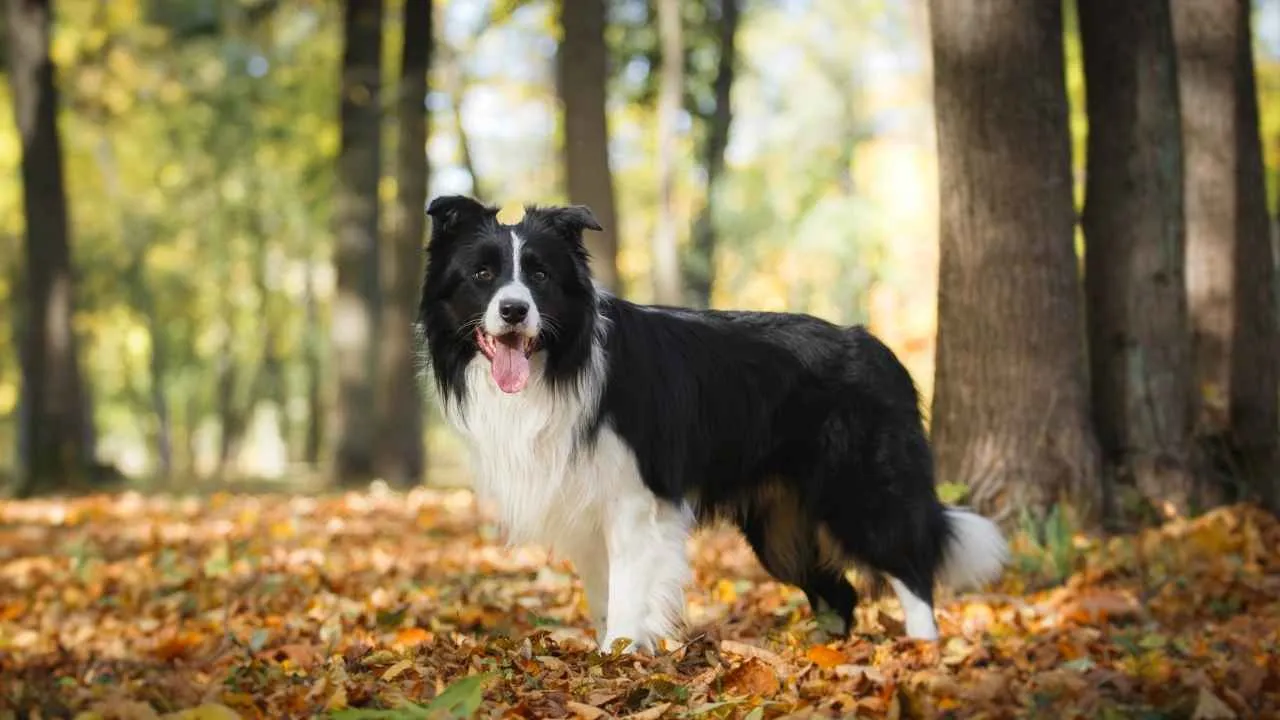
If your goal is to have a dog that alerts you to danger, barks at strangers, and keeps watch over your property, a Border Collie fits the bill perfectly. However, if you want a dog that looks intimidating, acts aggressively, or attacks intruders, you may need to consider a different breed.
Bred for herding, they are naturally vigilant and highly aware of their surroundings, quickly sensing when something is out of place. While not aggressive by nature, they excel at guarding through barking and attentiveness, making them ideal for households that want a protective yet non-threatening dog.
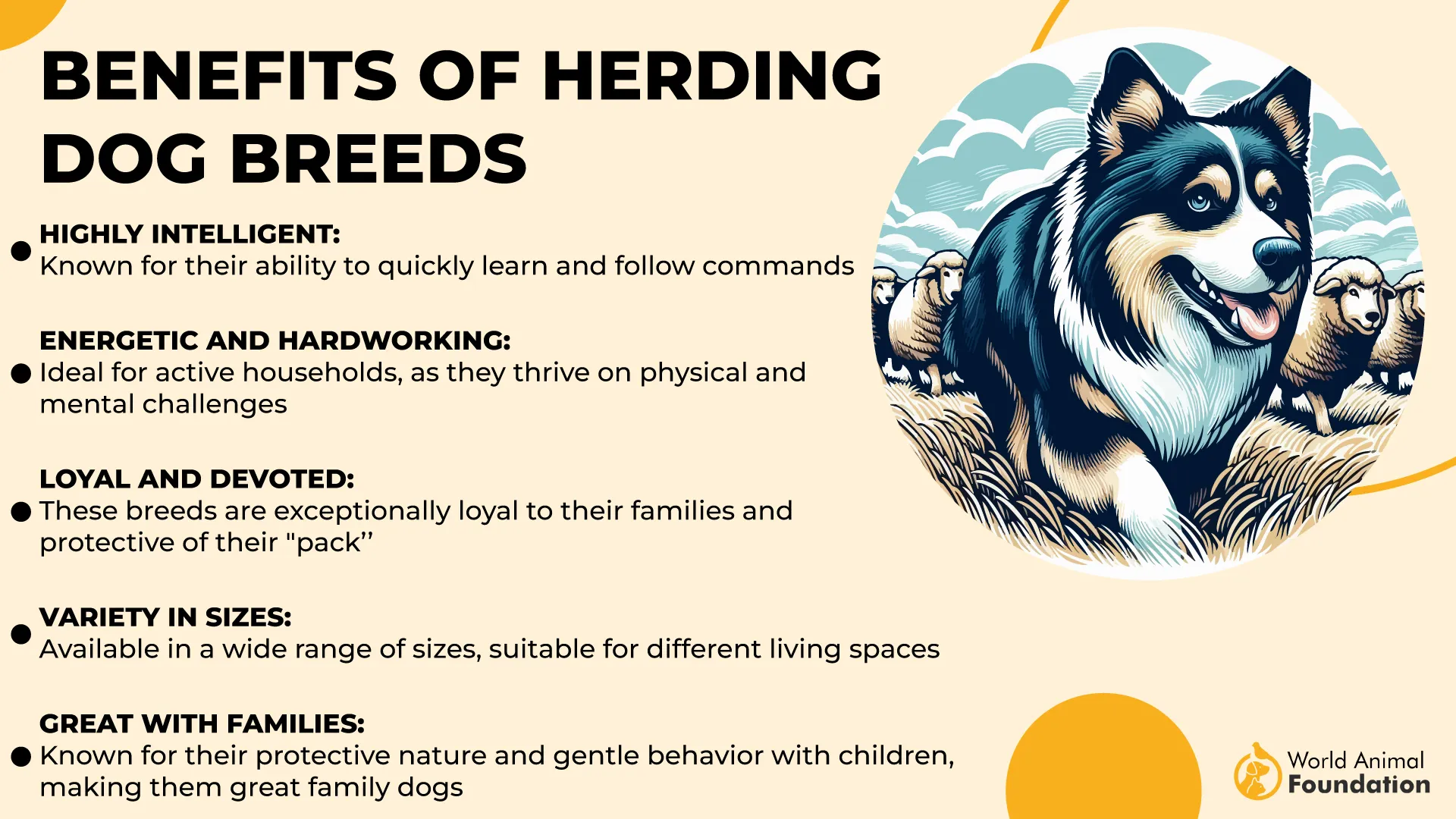
Living in an Apartment? Border Collies Can Adjust!
Border Collies can adapt to apartment living, but only if their high energy levels and sharp minds are properly engaged. These dogs need at least 2–3 hours of outdoor activity daily—long walks, park runs, or trail outings are essential to keep them physically balanced. Without this routine, they can become restless and frustrated, making them unsuitable for confined living.
Mental stimulation is equally crucial for this highly intelligent breed. Border Collies thrive on training sessions, puzzle toys, and interactive games like nose work. They’re also highly social and don’t tolerate being left alone for long periods. With the right commitment, Border Collies can thrive in an apartment setting.
Bonus: A Name That Tells a Story
The name “Border Collie” reflects their origin along the border of Scotland and England. “Collie” is thought to mean “sheepdog” or “useful”—and that they are!
2. Collie
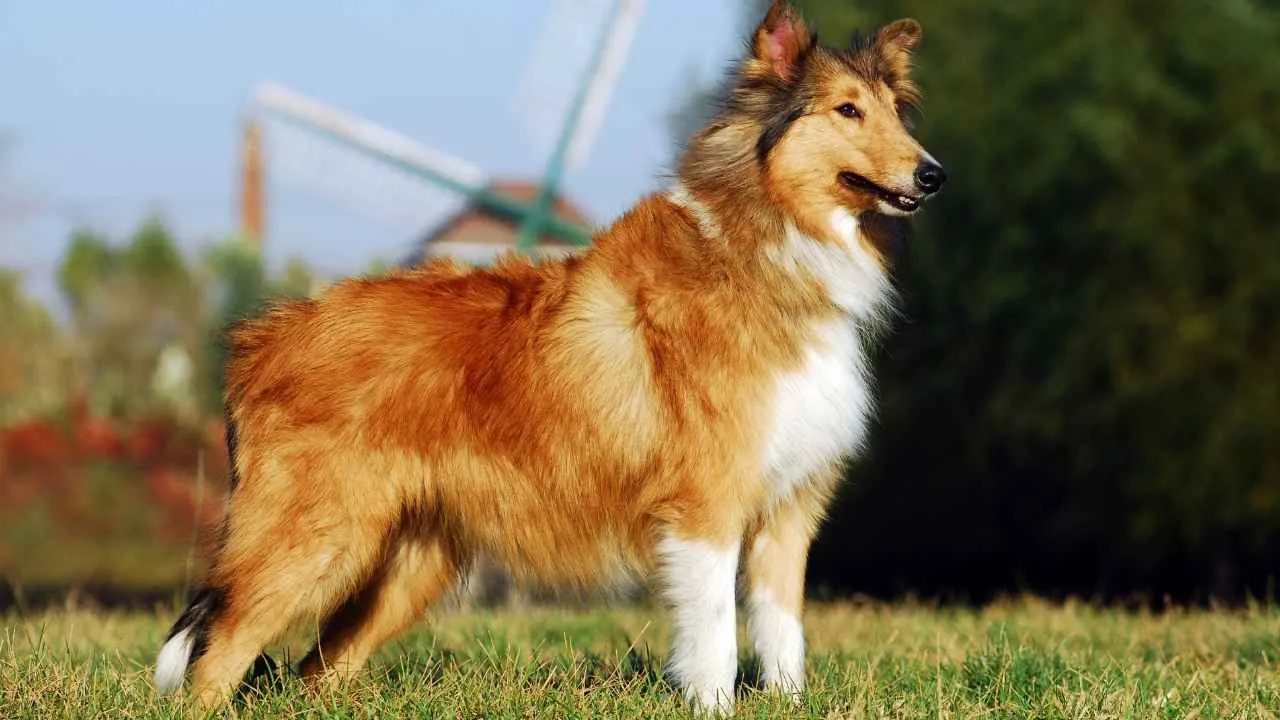
Collies are a smart, devoted breed developed in Great Britain, originally bred for herding and guarding sheep. Known for their sharp minds and affectionate nature, Collies come in various types, each with unique traits and grooming needs.
As noted by WebMD, Collies come in several varieties, each with its own charm and care needs. Rough Collies are known for their long, elegant coats and gentle, loyal nature, while Smooth Collies offer the same temperament with a shorter, lower-maintenance coat.
Bearded Collies are playful and shaggy, needing daily grooming and plenty of activity. Border Collies, smaller and highly energetic, stand out for their intelligence and herding instincts, requiring vigorous daily exercise and mental stimulation.
Helping a Border Collie Thrive in an Apartment
Daily Outdoor Time: Provide 2–3 hours of outdoor activity to keep them calm and content indoors.
Regular Exercise: At least 2 hours of physical activity is essential to prevent restlessness and behavioral issues.
Mental Stimulation: Engage them daily with training, puzzle toys, and socialization to challenge their sharp minds.
Avoid Long Alone Time: Hire a walker or sitter if you’re away for long hours—Collies don’t cope well with isolation.
Pet-Friendly Setup: Choose a dog-allowed apartment in a quiet neighborhood, and keep neighbors informed about your pet.
Do Collies Make Good Guard Dogs?
Yes—but more as watchdogs than attack dogs. While not aggressive by nature, Collies have a strong desire to protect family and property due to their herding background. They’re naturally alert, territorial, and loyal, making them excellent at warning owners of strangers or unusual activity.
3. Yorkshire Terrier
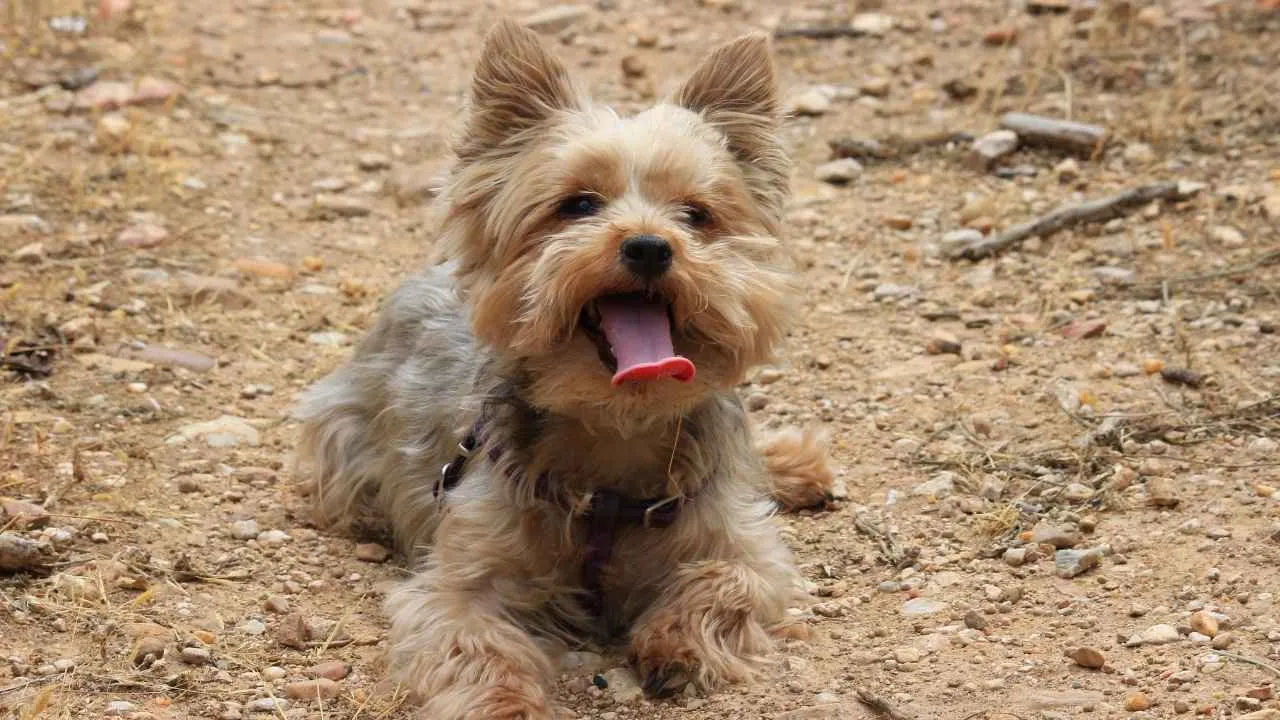
The Yorkshire Terrier’s origins date back to the mid-19th century in England, when Scottish weavers brought small terriers to Yorkshire to hunt rodents in textile mills. Over time, these working dogs evolved into stylish lap companions—thanks to selective breeding that reduced their size and elevated their charm.
One of the standout traits of Yorkies as guard dogs is their vocal nature. They are quick to bark at even the smallest disturbance, making their high-pitched, sharp barks an effective deterrent against intruders. Their vocal strength ensures they will immediately alert you to any potential threat, using their sound to protect their home and loved ones.
Yorkshire Terriers can adapt well to apartment living, but potential owners should be prepared for a few challenges. Their vocal nature, while effective as a deterrent, can become a nuisance if not properly managed, so consistent training is necessary to control excessive barking, especially in shared living spaces.
Yorkies also thrive on attention and companionship, so leaving them alone for long periods can lead to separation anxiety and unwanted behaviors. While they make loyal companions, Yorkies may not be the best choice for families with young children, as they can be easily startled and may nip if mishandled. Ensuring proper training, socialization, and attention can help Yorkies flourish in an apartment environment.
4. Boxer
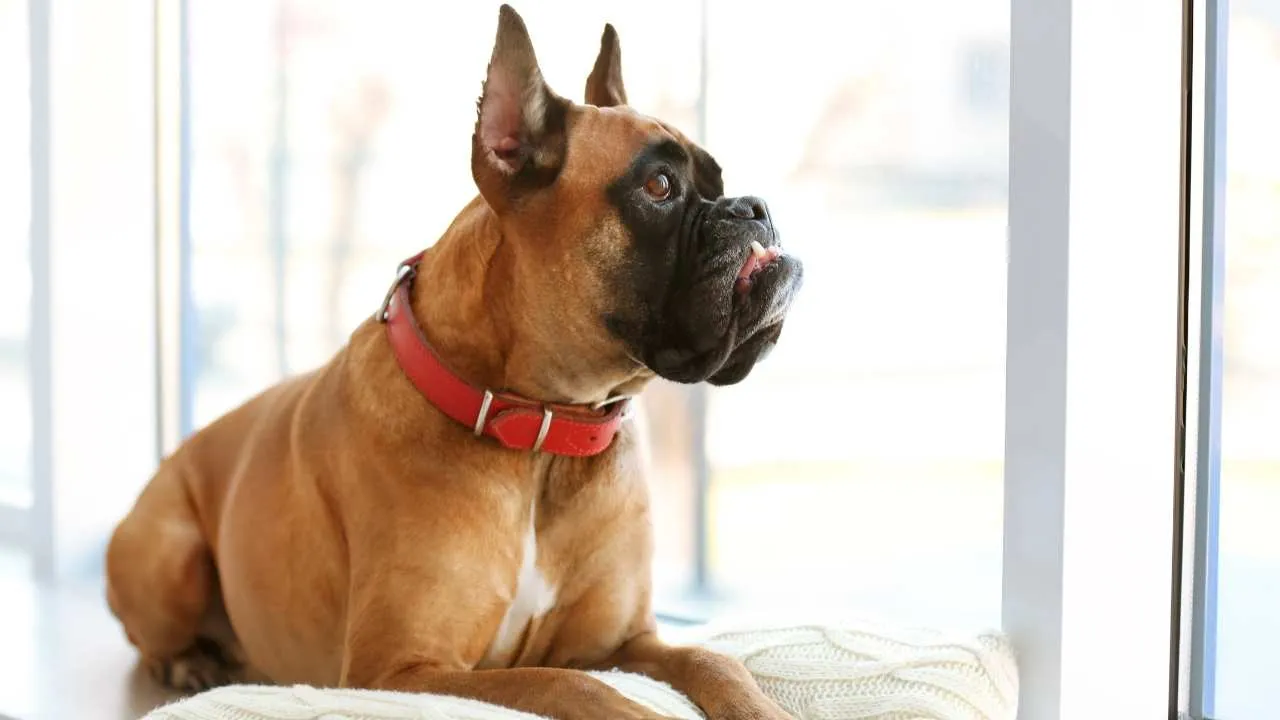
Boxers make excellent guard dogs thanks to their loyalty, intelligence, and natural protective instincts. They are highly alert and aware of their surroundings, often quick to detect and respond to potential threats. Despite their playful and affectionate nature with family, Boxers are steadfast protectors who will not hesitate to act when necessary.
Their muscular build, agility, and endurance contribute to their ability to deter intruders, while their keen hearing and vigilant disposition enhance their effectiveness as watchdogs.
Though they have a strong, intimidating appearance, Boxers are not naturally aggressive. With proper socialization and training, they remain friendly and sociable, only showing aggression when truly required.
Tips for Apartment Living with a Boxer
Boxers’ friendly, clean, and loyal nature makes them well-suited for smaller spaces, but they’re not ideal for owners who are away most of the day. With proper exercise, socialization, and mental stimulation, Boxers can be happy, well-behaved apartment companions.
Ensure 2+ hours of daily exercise through walks, play, or dog parks.
Start early training and socialization to manage their strength and stubbornness.
Avoid leaving them alone for long—use dog sitters or daycare if needed.
Interactive playtime helps prevent destructive behaviors.
Keep the apartment cool, as Boxers are sensitive to heat.
5. Great Dane
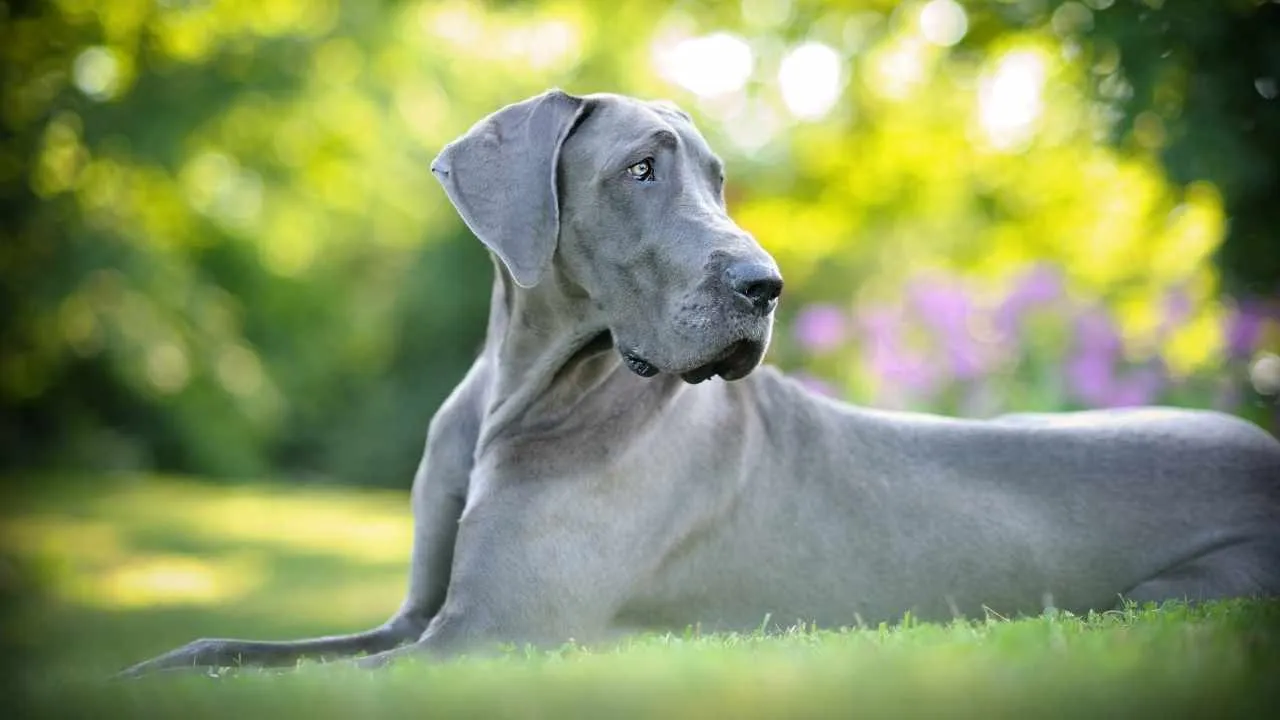
Bred over 400 years ago in Germany for boar hunting, the Great Dane is now cherished for its graceful build, calm temperament, and affectionate nature. Britannica states that despite their imposing size, Danes are known for being friendly and dependable, earning them the fitting title of “gentle giant.”
Great Danes may not be naturally aggressive, but their loyalty, size, and protective instincts make them effective guard dogs with proper training and socialization. They are affectionate and devoted to their families, quick to alert them to intruders, and can be territorial.
Increasingly, Great Danes are also being trained for security, search and rescue, and detection roles due to their strength, tracking abilities, and keen sense of smell. Early socialization is essential to ensure balanced behavior in this powerful breed.
Apartment Living with a Great Dane: Is It Possible?
Apartment living with a Great Dane is possible when the space and lifestyle are adapted to meet their needs. A first-floor unit is ideal to minimize noise issues from their large frame, and an open layout helps them move comfortably. Proximity to an outdoor area is crucial for bathroom breaks and daily exercise.
While generally quiet, Great Danes can still trigger noise complaints, and some apartment complexes may have breed or weight restrictions. They require regular physical and mental stimulation to stay balanced.
Adult Danes benefit from 2–3 brisk walks daily, while puppies need shorter, age-appropriate outings to protect their developing joints. Jogging or strenuous activity should be avoided during growth stages to prevent injury.
Interesting Facts
Danes are known in Germany as the Deutsche Dogge (German Mastiff)
Featured in pop culture through Scooby-Doo, Marmaduke, and The Ugly Dachshund
Recognized as the official state dog of Pennsylvania
6. Dachshund
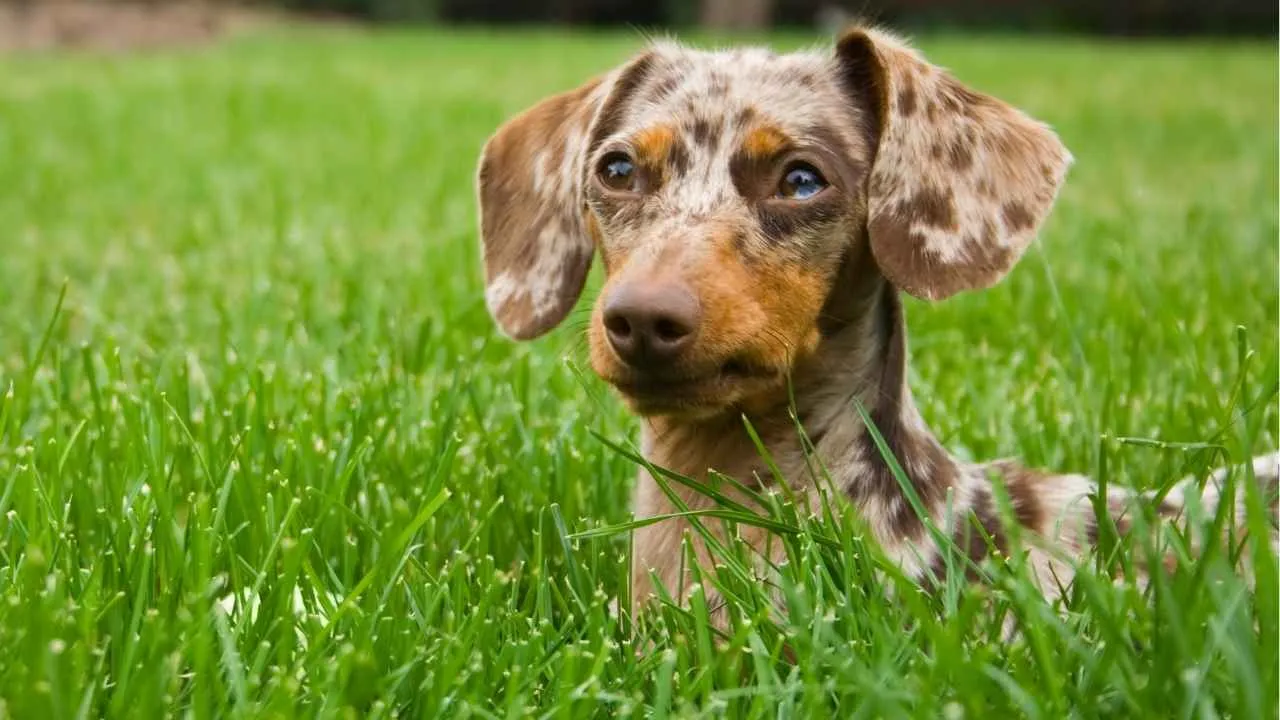
Originating in Germany, the Dachshund was bred to hunt badgers—hence its name, which literally means “badger dog.” With a long, low body and a lively spirit, this hound-terrier mix is known for both its charm and courage. They are often nicknamed Doxie, Wiener Dog, and Sausage Dog.
As noted by Sweetdachshunds, despite their small size, Dachshunds possess strong guarding instincts rooted in their hunting background. Their keen sense of smell, sharp hearing, and determined nature make them naturally alert and vigilant.
Known for their deep loyalty and emotional attachment to their owners, Dachshunds are quick to respond to unfamiliar sounds or strangers. Their tendency to bark and growl when sensing a threat showcases their protective nature, making them reliable watchdogs who are always on alert to safeguard their home and loved ones.
Dachshund Suitability for Apartment Living
Dachshunds are well-suited for apartment life due to their compact size and affectionate nature. They enjoy being close to their humans and thrive indoors, making them ideal for smaller living spaces. However, they can be vocal, which may be an issue in noise-sensitive buildings.
While they’re intelligent and enjoy mental stimulation like puzzle toys and scent games, care should be taken during physical play to prevent back injuries. Early socialization is key, as Dachshunds may not easily get along with other pets and are generally better companions for adults or older children.
7. German Shepherd
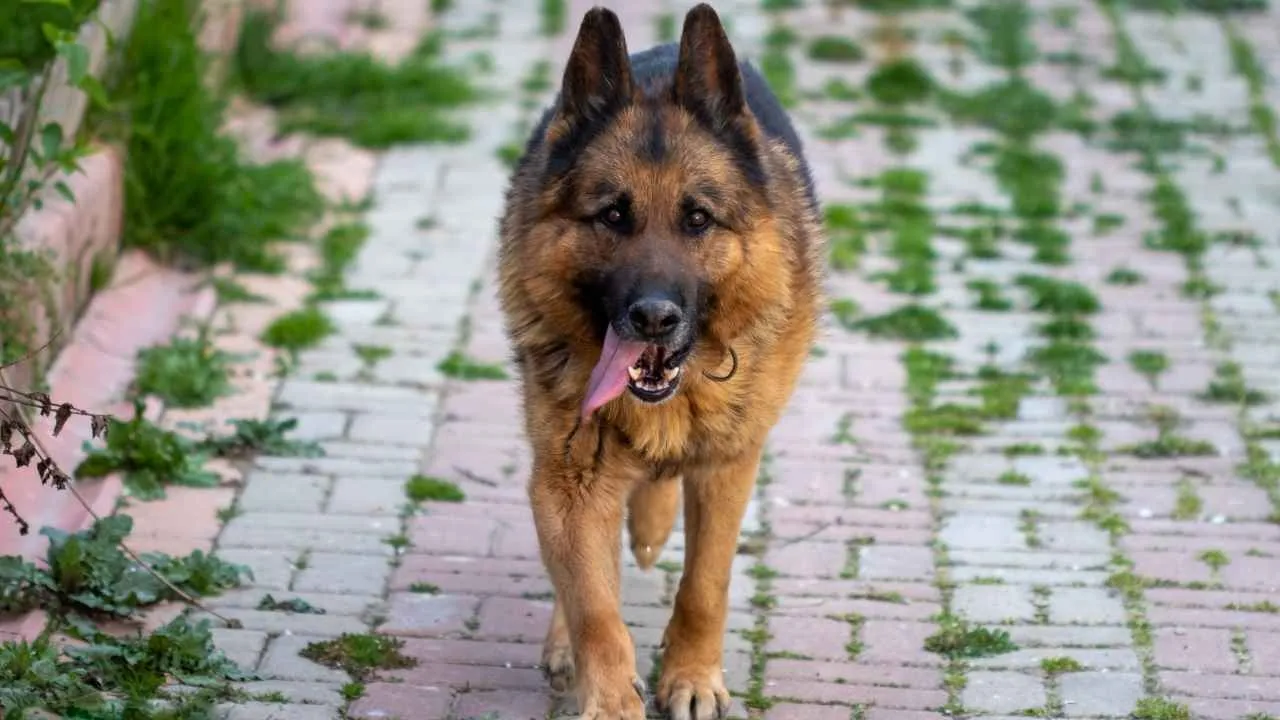
The German Shepherd, also known as the Alsatian, is a powerful and intelligent breed developed in Germany for herding and protection. With a strong build, alert eyes, and a dense coat that varies in shades of black, gray, and tan, this breed is admired worldwide for its loyalty and versatility.
In 1899, Captain Max von Stephanitz spotted an impressive herding dog at a German dog show. This dog, later named Horand von Grafrath, became the prototype for the German Shepherd breed. Stephanitz founded the Verein für Deutsche Schäferhunde (SV) to set strict standards for breeding intelligent, utility-focused dogs.
German Shepherd as a Guard Dog
German Shepherds are natural protectors, bred for guarding and known for their fearless nature, strong loyalty, and intelligence. Oledoghouse states, their protective instincts typically emerge between 6 to 18 months of age, making early training—ideally by 8 to 10 weeks—crucial to ensure these instincts are properly guided.
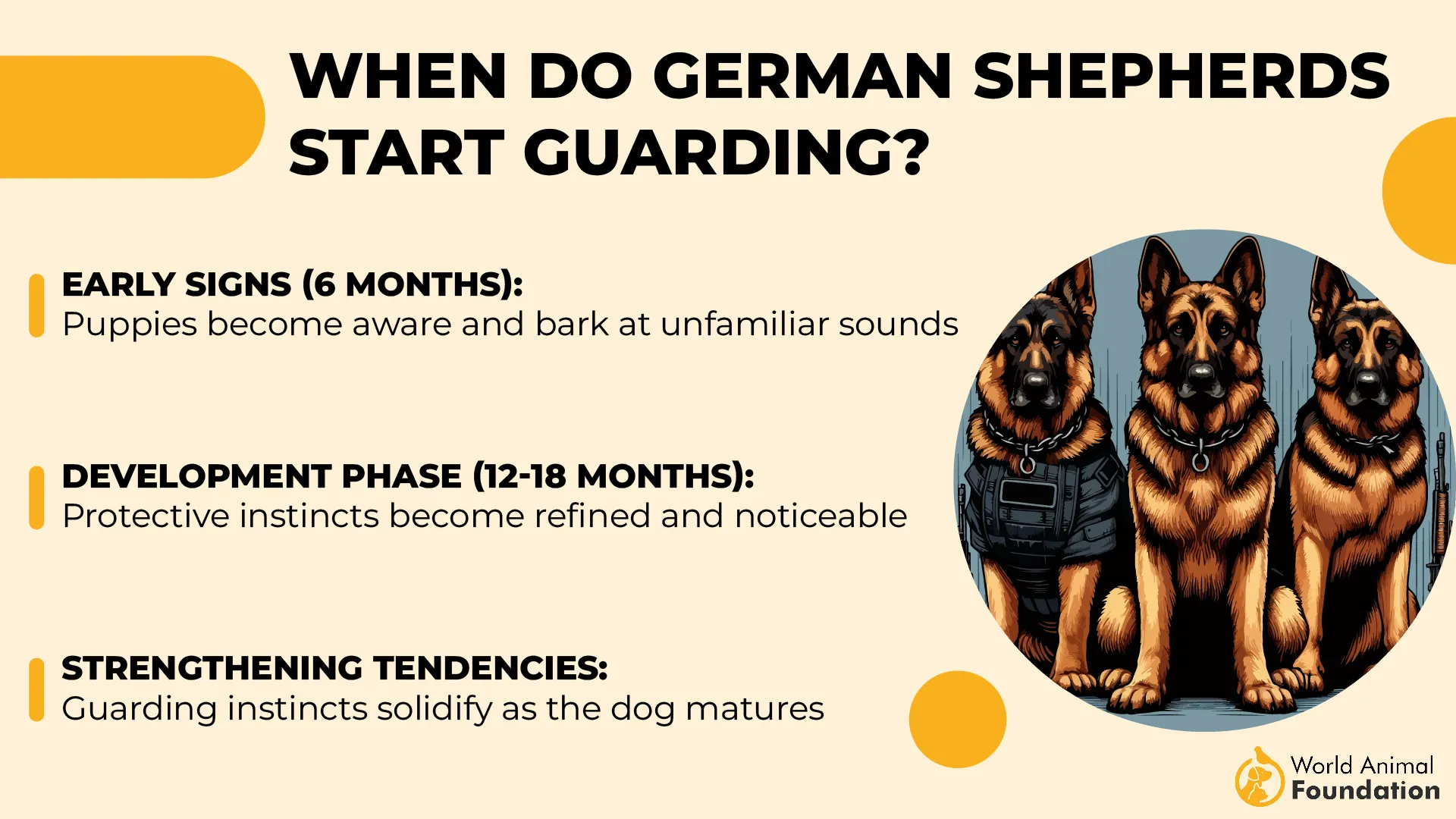
With the right training, German Shepherds become dependable guard dogs who respond well to commands and remain calm under pressure. Their combination of strength, alertness, and deep devotion to their family makes them ideal for security roles, from home protection to police and military work.
Tips for Apartment Life
Daily exercise: 1.5–2 hours of activity is essential
Mental stimulation: Keep their minds busy to prevent boredom
Obedience training: Crucial for managing their energy and guarding instincts
Start young: Adaptability is better if raised in that environment from puppyhood
Without enough activity, they may become destructive or overly vocal.
Conclusion
Choosing the best guard dog breeds for an apartment lifestyle is possible with the right balance of protection and companionship. Dogs like the Doberman Pinscher and the Giant Schnauzer are natural protectors and make excellent bodyguard dogs. Their rough coats and strength make them formidable, while their friendly temperament, with proper socialization, ensures they’re great with kids and other animals.
Breeds like the Anatolian Shepherd, a known flock guardian, are also suited for apartment life when given enough exercise. Low-maintenance dogs can be ideal for busy lifestyles, while canine sports enthusiasts can enjoy active breeds with activities like dock diving.
Working with a reputable breeder ensures a well-adjusted dog, making it possible to have a large dog in your apartment without the trouble. With the right breed and care, apartment living and guarding can go hand in hand.


